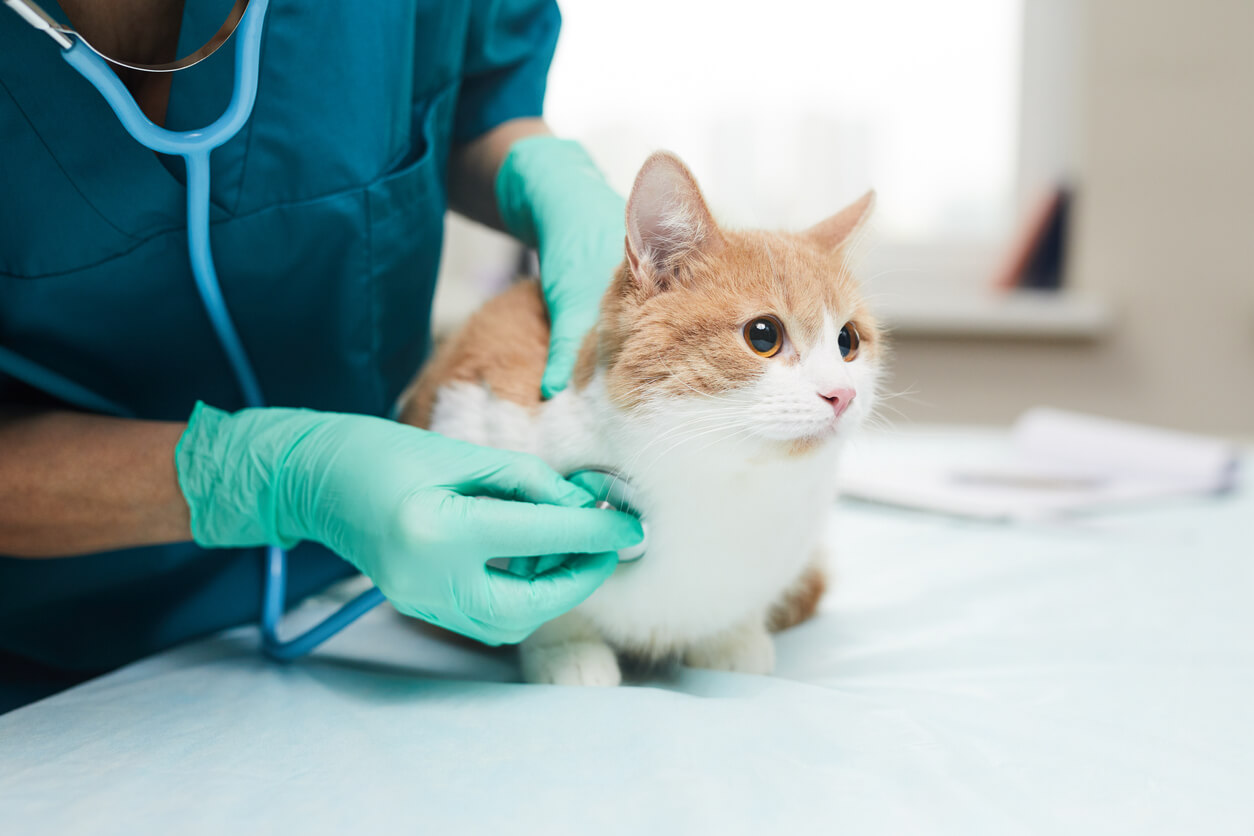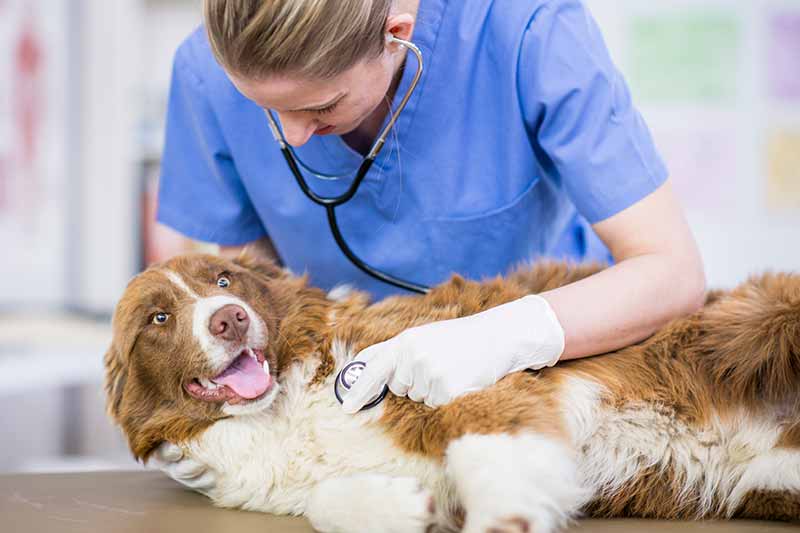Vaccination Guidelines From Your Relied On Vet
Inoculation guidelines offered by your trusted veterinarian play an important function in protecting your animal's health and wellness. Core injections are fundamental for all animals, while non-core vaccinations can be customized to details way of livings and environmental exposures. Recognizing the subtleties of vaccination schedules, which start as very early as 6 to eight weeks, is vital for optimal protection. Additionally, addressing usual false impressions bordering vaccinations can additionally enhance pet dog proprietors' self-confidence in these preventive actions. As we check out these important facets, it becomes significantly clear why routine assessments with your veterinarian are indispensable for notified decision-making.

Importance of Vaccinations
Inoculations play a pivotal role in protecting pets versus a variety of avoidable conditions. By boosting the immune system to identify and deal with details microorganisms, vaccinations significantly decrease the incidence of contagious conditions that can affect a family pet's health and wellness and longevity. Not only do vaccinations protect specific animals, yet they additionally add to herd resistance, consequently reducing the overall frequency of diseases in the pet dog populace.
Prompt vaccinations aid to alleviate the spread of diseases such as rabies, parvovirus, and distemper, which can have serious consequences for both humans and animals. Inoculations are typically a demand for boarding facilities, grooming solutions, and dog parks, making them vital for those who want to mingle their pets.

Core Vaccines for Family Pets
While the particular inoculation requirements of pets can differ based on specific elements, core vaccinations are generally recommended to shield against the most significant and typical conditions (Emergency Vet). Core vaccinations are those considered necessary for all animals, no matter of their lifestyle or geographical place, as they protect against possibly fatal and very contagious ailments
For pets, the core vaccines include those for canine distemper, parvovirus, adenovirus (hepatitis), and rabies. Adenovirus can result in liver condition, while rabies is a zoonotic disease that positions a danger to both family pets and human beings.
In pet cats, core vaccinations incorporate feline panleukopenia, feline calicivirus, feline herpesvirus (rhinotracheitis), and rabies. Feline panleukopenia is an extremely transmittable viral condition that influences the body immune system and intestines. Calicivirus and herpesvirus are significant factors to top respiratory system infections in pet cats, while rabies stays a crucial worry for public health and wellness.
Seek advice from your vet to guarantee your pet dogs obtain their core inoculations on timetable.
Non-Core Vaccines Explained
Non-core vaccines are customized to resolve details threats related to a pet's direct exposure, way of life, and setting to particular conditions. Unlike core injections, which are generally recommended for all pet dogs, non-core vaccinations are taken into consideration based on individual circumstances. These vaccinations are particularly vital for pet dogs that may run into special pathogens as a result of their geographical place, traveling routines, or activities.
Instances of non-core vaccines consist of those for Bordetella bronchiseptica, which is linked to kennel coughing, and Lyme disease, created by ticks. Family pets that regularly engage with other animals, such as those in boarding centers, canine parks, or brushing atmospheres, might gain from Bordetella inoculation. If you live in a location where Lyme disease is widespread, vaccinating against this illness can be a sensible option for outdoor-loving pets.
Other non-core injections might include those for leptospirosis, canine influenza, and feline leukemia, depending on the particular threat variables present. It is vital to have a thorough discussion with your veterinarian concerning your animal's way of life and the possible demand for these vaccines, making sure a customized inoculation approach that best safeguards your fuzzy friend.
Vaccination Set Up Introduction

As family pets develop, it is essential to abide by the advised booster inoculations. Emergency Vet. For grown-up pets, core vaccines are usually provided every one to three years, relying on the specific injection and local laws. Non-core vaccines may be recommended based on lifestyle factors and regional condition frequency, necessitating a customized method
Routine veterinary examinations are crucial for updating vaccination routines. Your veterinarian can offer guidance on the most suitable immunizations for your animal, factoring in age, health Clicking Here status, and environmental risks. By remaining aggressive and notified, family pet proprietors can ensure their furry companions receive timely and effective inoculations, therefore safeguarding their wellness and health throughout their lives.
Typical Misconceptions About Vaccines
Mistaken beliefs regarding animal inoculations can bring about complication and unwillingness among pet dog owners concerning the immunization procedure. One common myth is that vaccinations are unneeded for indoor pets. While it's real that indoor pets encounter reduced risks, they are not completely immune to diseases, as virus can be introduced through numerous methods, consisting of human garments and other family pets.
One more misconception is that vaccinations can trigger the diseases they intend to avoid. Actually, a lot of vaccines have inactivated or undermined virus, which can not trigger disease in healthy pets. Some animal proprietors likewise think that their animals need to not be vaccinated if they are already healthy and balanced; nevertheless, inoculations are a proactive action that aids protect against the beginning of illness.
In addition, several family pet proprietors are afraid that injections will lead to long-lasting health and wellness problems. The advantages of vaccination-- securing pet dogs from potentially learn this here now dangerous diseases-- far exceed the risks.
Conclusion
In recap, adherence to vaccination standards is crucial for making sure the health and long life of family pets. Core vaccinations give essential protection versus significant diseases, while non-core vaccines address particular risks based upon specific lifestyles. Developing a thorough vaccination schedule, combined with routine vet exams, helps with ideal health and wellness management. Eliminating usual misconceptions surrounding inoculations even more enhances the importance of notified decision-making in animal care. Ultimately, a proactive technique to vaccinations is crucial for keeping pet health.
Not only do vaccinations secure specific animals, however they also add to herd resistance, therefore reducing the overall occurrence of diseases in the pet population.
Mistaken beliefs regarding pet inoculations can lead to complication and reluctance among family pet proprietors pertaining to the booster shot procedure. While it's real that interior pets deal with reduced risks, they are not completely immune to conditions, as microorganisms can be presented with numerous ways, including human clothing and various other family pets.
Some pet owners also think that their family pets must not be immunized if they are already healthy; nonetheless, vaccinations are a proactive measure that helps stop the start of disease.
The advantages of vaccination-- shielding animals from possibly lethal illness-- much exceed the dangers.